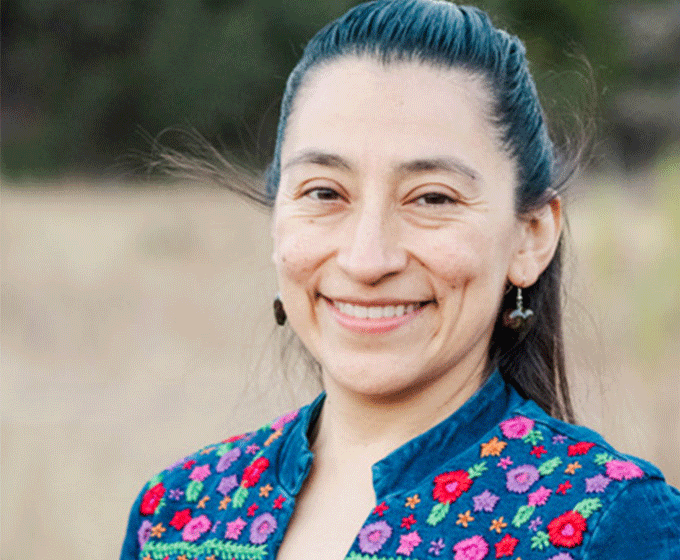
APRIL 22, 2021 — Young Mexican Americans online will rely on African American English (AAE) stylistics to create identity and challenge existing social power. This is the finding from research produced by associate professor Martha Sidury Christiansen in UTSA’s Department of Bicultural Bilingual Studies.
Her work “Identity and Empowerment: Vernacular English Features Used by Bilingual Mexicans Online” is the result of her ethnographic analysis of a social network of families on Facebook.
Christiansen argues that this research can inform how educators can better understand multilingual groups and their use of language beyond a mere communicative purpose.
“Findings show that vernacular features do not merely represent who speakers are,” Christiansen said. “That is, while participants used AAE vernacular features to express their opinions, it was not to form an African American identity but to emphasize their non-white identities.”
In the ethnographic research carried out by Christiansen, the youth expressed identity by stating what they don’t identify as “yuppie” or “white.” Also, that same use of language borrowed from African Americans permitted one Latina female to feel that her feminism was strengthened.
According to Christiansen, people shift language varieties and identities over their lifetimes due to work, communities of practice, and belonging to multiple imagined communities.
“We assume that people operate in this monolithic language, but they don’t,” Christiansen said. “We see that people’s practices are different.”
Because identities change, she further argues that her framework of ethnolinguistic repertoire improves understanding of speakers and how they decide to draw on language ideologies to enact their social and ethnic identities through the use of any given feature or variety of language.
The UTSA study relied on two data sets of Facebook posts of a tight social network of self-identified American-born Mexicans. Fourteen were recruited and an analysis of 1,364 posts were then coded along an AAE scale.
“Although ethnographic studies are small, what they do is that they connect to a greater whole,” Christiansen explained.
The implications for this ethnographic work include how language studies could guide educational curriculums to grow diversity in education, as well as expanding the view that groups will rely on language from others in a continuum. Students do this for different purposes, which brings up questions of what is meant by “language appropriateness” approaches. Moreover, Christiansen’s work serves to add to new research known as the raciolinguistic perspective, which seeks to examine the complex role between language and race.
UTSA’s Department of Bicultural-Bilingual Studies is ranked second in the nation in bilingual, multilingual, and multicultural education by Hispanic Outlook Magazine. The department has one of the highest employment rates with 98% of doctoral students employed within one year of graduation. Almost 7 in 10 of UTSA’s bicultural-bilingual doctoral students pursue and find positions in academia.
UTSA Today is produced by University Communications and Marketing, the official news source of The University of Texas at San Antonio. Send your feedback to news@utsa.edu. Keep up-to-date on UTSA news by visiting UTSA Today. Connect with UTSA online at Facebook, Twitter, Youtube and Instagram.
Move In To COLFA is strongly recommended for new students in COLFA. It gives you the chance to learn about the Student Success Center, campus resources and meet new friends!
Academic Classroom: Lecture Hall (MH 2.01.10,) McKinney Humanities BldgWe invite you to join us for Birds Up! Downtown, an exciting welcome back event designed to connect students with the different departments at the Downtown Campus. Students will have the opportunity to learn about some of the departments on campus, gain access to different resources, and collect some giveaways!
Bill Miller PlazaCome and celebrate this year's homecoming at the Downtown Campus with food, games, giveaways, music, and more. We look forward to seeing your Roadrunner Spirit!
Bill Miller PlazaThe University of Texas at San Antonio is dedicated to the advancement of knowledge through research and discovery, teaching and learning, community engagement and public service. As an institution of access and excellence, UTSA embraces multicultural traditions and serves as a center for intellectual and creative resources as well as a catalyst for socioeconomic development and the commercialization of intellectual property - for Texas, the nation and the world.
To be a premier public research university, providing access to educational excellence and preparing citizen leaders for the global environment.
We encourage an environment of dialogue and discovery, where integrity, excellence, respect, collaboration and innovation are fostered.